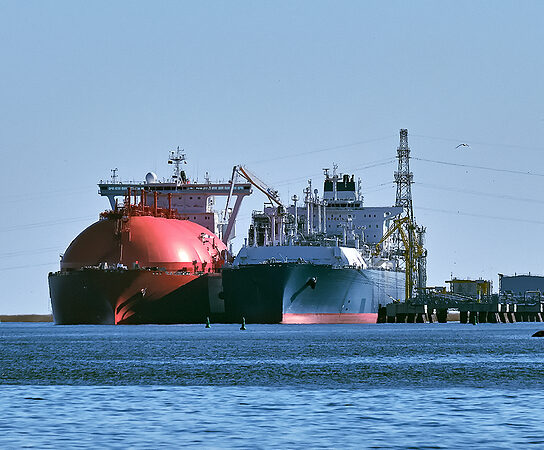Energy industry leaders groups in Pennsylvania and across the U.S. blasted a new Biden-Harris administration report urging limits on liquid natural gas (LNG) exports as deceptive and driven by politics.
In the report, Energy Secretary Jennifer Granholm acknowledged the industry helped provide jobs to Americans, but argued increasing LNG exports would harm the U.S. economy in the long term.
“[U]nfettered exports of LNG would increase wholesale domestic natural gas prices by over 30 percent,” Granholm said in a press call on Tuesday.
The Energy Department’s study followed President Joe Biden’s decision in January to enact a “temporary pause” on LNG exports and export terminal approvals. Biden justified the pause by describing “the climate crisis for what it is: the existential threat of our time.”
“We have recently lived through the real-world ripple effects of increased energy prices domestically and globally since the pandemic,” Granholm said, arguing that “a business-as-usual approach is neither sustainable nor advisable.”
American Petroleum Institute Vice President Amanda Eversole dismissed the claim that higher LNG exports would lead to higher natural gas bills here at home.
“Americans enjoy among the lowest residential natural gas prices in the world. And just since we saw price spikes in 2023, prices have come down 62 percent,” she told the DVJournal podcast Tuesday.
Several independent studies appear to refute the administration’s findings.
A Texas Oil & Gas Association-commissioned study reported natural gas prices at Louisiana’s Henry Hub in February 2024 were at their lowest since 1994. “LNG exports have spurred production and fostered productivity gains, thus contributing to sustained downward pressure on prices,” the study concluded.
The S&P Global review reported U.S. household gas prices would be negligibly impacted by increased LNG exports. Analysts noted gas prices trended downward, “interrupted only temporarily by the combination of rapid post-COVID growth and Russia’s invasion of Ukraine in 2022.”
S&P found the use of natural gas and renewables in power generation helped coal demand decline by 2.9 percent per year. It suggested countries would use coal or non-U.S. LNG to generate energy if the pause remained in place.
The U.S. is the world’s largest exporter of LNG. Part of that is due to European countries moving on from Russian LNG due to its 2022 invasion of Ukraine. American exports to Europe rose 119 percent that year and remain at record levels, according to the U.S. Energy Information Administration (EIA).
The Biden administration argues there is no reason to expand exports further. “The amounts that have already been approved will be more than sufficient to meet global demand for U.S. LNG for decades to come,” Granholm said.
She also argued global emissions would rise as LNG exports rose, specifically from larger U.S.-based projects. “[It] would yield more annual greenhouse gas emission by itself than 141 of the world’s countries each did in 2023,” said Granholm. She added U.S. LNG exports replace renewable energy plans, instead of fossil fuels.
Marcellus Shale Coalition (MSC) President David Callahan called Granholm’s comments a “political charade” that ignore reality.
“Abroad, U.S. LNG exports enhance energy security and environmental advancement. At home, exports promote jobs across the natural gas value chain and deliver energy savings for consumers,” he said.
Statistics show the natural gas industry significantly contributes to the U.S. and Pennsylvania economies.
An S&P Global review, released the same day as the administration’s study, reported the LNG industry contributed $408 billion to the U.S. Gross Domestic Product and supported 273,000 jobs per year. Similarly, a MSC analysis found the industry generated $40 billion in economic activity in Pennsylvania in 2022 and supported 123,000 jobs.
“As the United States’ second-largest producer of natural gas behind only Texas, Pennsylvania has created thousands of good-paying union jobs in helping to build out the assets necessary to deliver these energy resources responsibly,” Kurt Knaus, a spokesperson for the Pennsylvania Alliance for Energy, told DVJournal.
Eversole said if Pennsylvania were a nation, it would be the world’s fifth-largest natural gas producer.
The debate over energy played a key part in the 2024 election.
President-elect Donald Trump promised to support increased production and defend fracking, while Vice President Kamala Harris had previously pledged to end fracking — a position she reversed after becoming the Democratic Party’s presidential nominee.
Trump has nominated Liberty Energy CEO Chris Wright as energy secretary, and Eversole says it’s a good choice.
“Chris is a talented executive, and he really understands — not just the oil and gas sector, though that’s incredibly important — but he’s also an ‘all of the above’ kind of guy. I’m very optimistic that, by bringing somebody with both technical expertise and business acumen to the administration,” Eversole said. “We’re going to see great benefits going forward.”
Energy groups are hopeful the Energy Department’s study will turn out to be nothing, once Trump is sworn in next month.
“I look forward to this (LNG) study being thrown in the trash bin on January 20, 2025, because that’s where it belongs,” quipped American Energy Alliance President Tom Pyle.

